Kirk Hammett: “I was pretty active during Covid, writing a ton of different types of music. I wrote Metallica music, Portals music – all different types of music”
The Metallica guitarist on his horror-inspired instrumental solo EP, Portals, the evergreen joy of musical discovery, and why the omens look good for a new album from metal’s biggest band
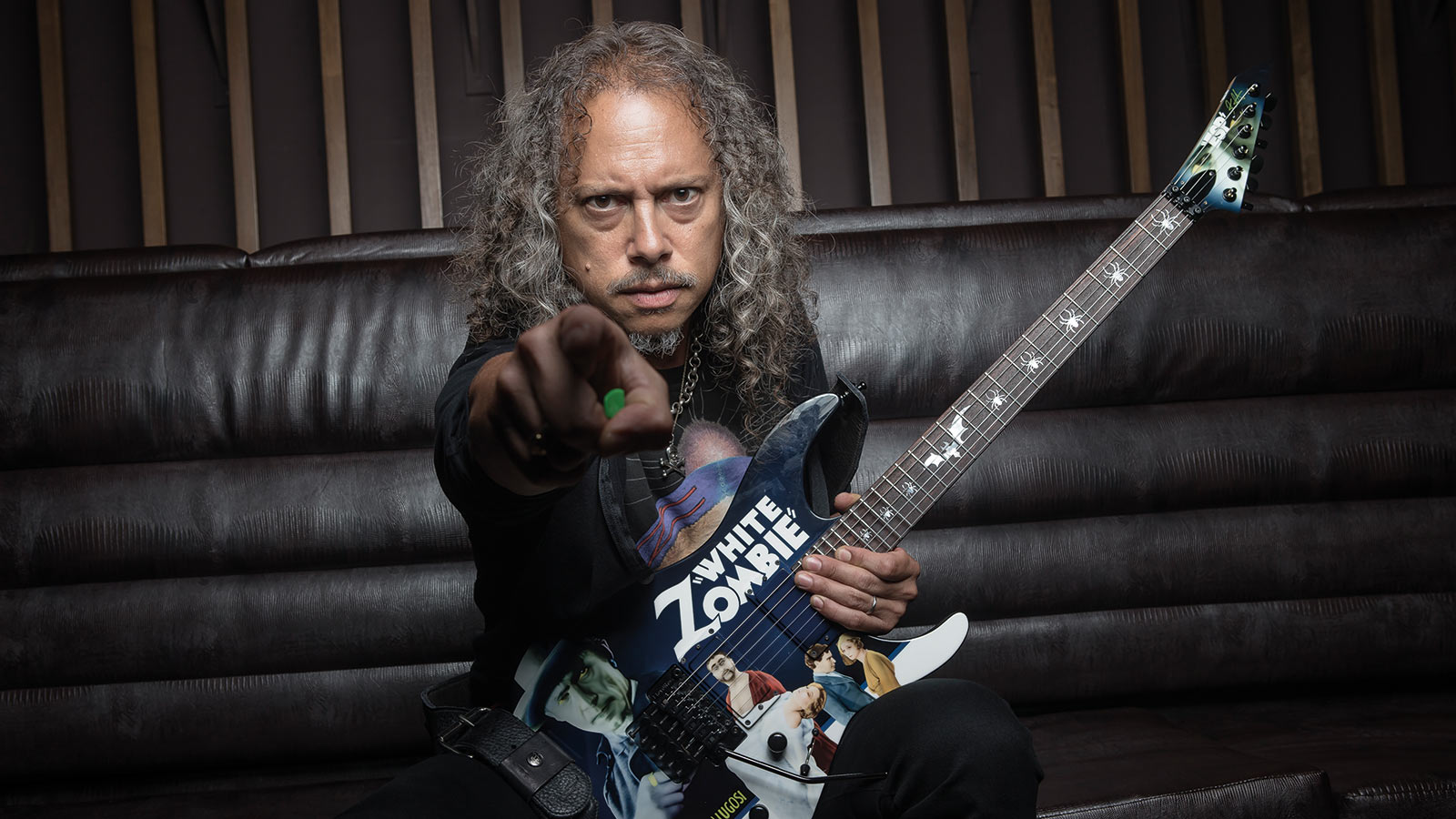
As lead guitarist of one of the biggest-selling bands in history, Kirk Hammett needs little in the way of an introduction. While Metallica have been teasing fans with the promise of a new album since last summer, Kirk has emerged as the first band member to step from the mothership and fly solo with his new four-track, horror movie-influenced EP Portals.
Originally conceived as “background music” to accompany his It’s Alive! exhibition of horror flick posters and memorabilia, Portals evolved to become a collection of “soundtracks to the movies in your mind”.
Produced by Kirk, the EP is comprised of four high-concept instrumental tracks: Maiden And The Monster, The Jinn, High Plains Drifter and The Incantation – each inspired by a different era in horror movie history.
The latter two tracks were co-written by conductor Edwin Outwater, whom Kirk first met while working on Metallica’s S&M2 concerts, and who leads orchestral players from the LA Philharmonic to give Portals its baroque-meets-metal aesthetic.
Speaking from his home in San Francisco, Kirk discusses the origins of his new music and his go-to gear for these new recordings. And yes, he says, there is a new Metallica album in progress...
After working as part of a unit for so long, what’s it been like to head out in your own creative direction?
“It’s something that I’ve been living with for a long time. You know, I have this whole other side of my musical personality, but I’ve never had a real platform to express it. Now I do and I’m really happy about that.
Get The Pick Newsletter
All the latest guitar news, interviews, lessons, reviews, deals and more, direct to your inbox!
The first couple of songs – Maiden And The Monster and The Jinn – were my attempt to write background music for my museum show of horror movie posters
“It’s pretty weird because usually, at this point with an album release, it’s not just me, it’s the four of us, and we have each other’s backs and we’re supporting each other.
“But this time, taking it all on by myself, I feel a little bit naked and a little bit insecure. When I’m feeling that way, that’s when I need to take a step back and say,’It’s okay to believe in the music,’ and that gets me through all those feelings of self-doubt.”
How did the idea for Portals come about?
“It never started with the intent of this stuff becoming part of an album and being released as a solo project. The first couple of songs – Maiden And The Monster and The Jinn – were my attempt to write background music for my museum show of horror movie posters, and that turned into something else.
“Then I met Edwin Outwater working on S&M2. He’s a big horror fan and I am as well, so I said to him, ‘Let’s collaborate on something and make it horror movie-influenced and cinematic.’ That’s where High Plains Drifter and The Incantation came from. It’s funny, I have these four pieces of music, and I still don’t have any background music for the exhibition – I just realized that!”
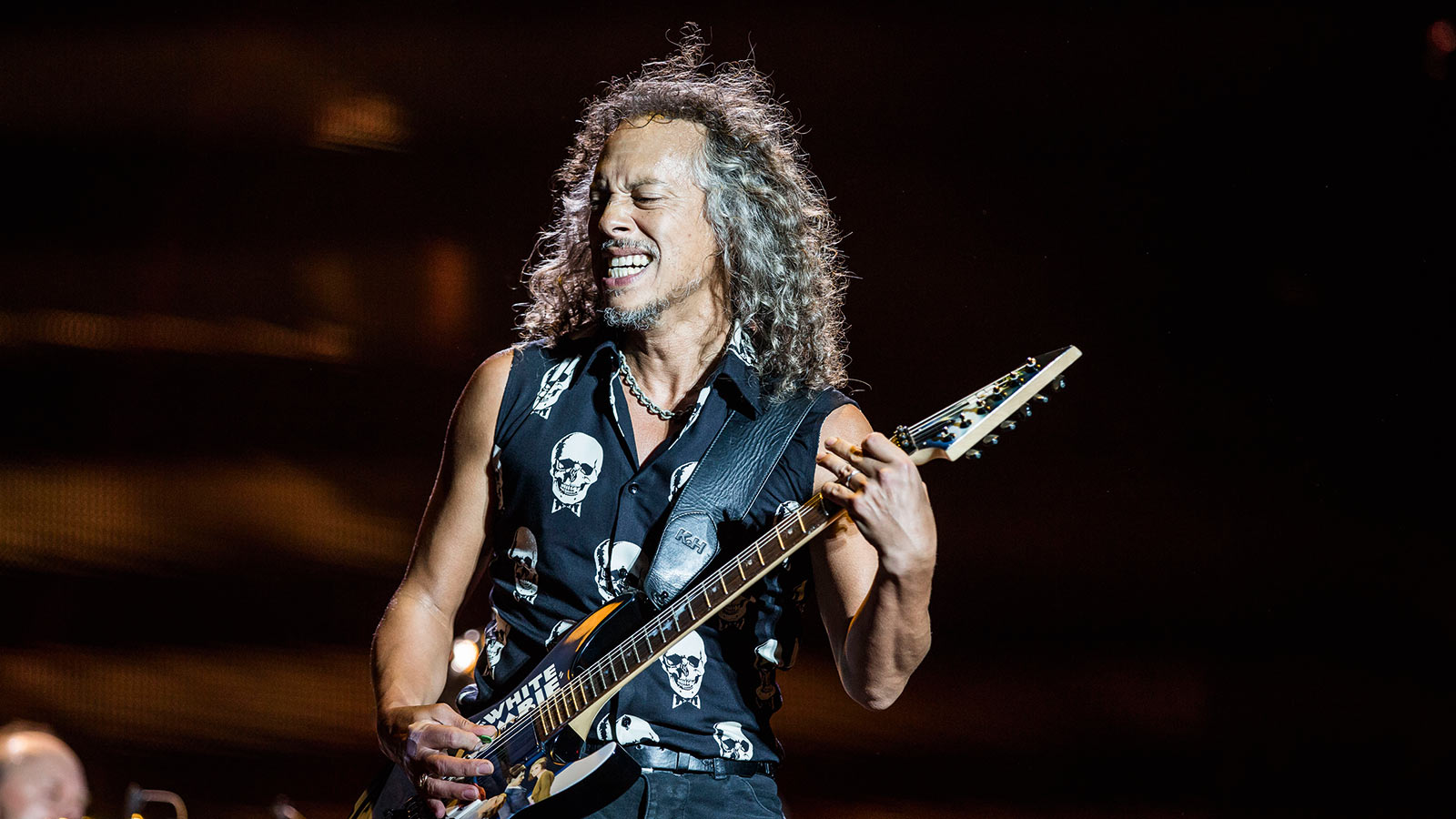
Portals combines both, but which came first, your love of guitar or your love of horror?
“That’s an interesting one because when I think about it, they both happened around the same time. I saw my first horror movie when I was five years old. It was The Day Of The Triffids. Also, I remember, at four or five years old, being aware of music and the radio, and my sister going around singing Beatles songs. So, I think they both kind of crystallized inside of me around the same time.
When I was fifteen years old, I got hold of a guitar, another love of mine that is just as intense as horror movies, and it became another obsession
“When I was fifteen years old, I got hold of a guitar, another love of mine that is just as intense as horror movies, and it became another obsession. It was a natural progression for me to bring the two together. My first attempts at that were designing these guitars with horror movie posters on them like my Mummy, Frankenstein, Dracula and Nosferatu guitars.
“That was a cool way of bringing the two genres together, and so when I wrote Maiden And The Monster, it occurred to me that I could do the same thing musically, and knowing that was a huge lightning bolt of inspiration and creative determination.
“I sat down, and the first thing I played was that arpeggiated part in Maiden And The Monster. I started playing chromatic. It’s a C#m7 chord going chromatically from C# to Cmaj7 to B5 and back to Cmaj7, and that was the basis of Maiden And The Monster – everything came out of that simple progression.”
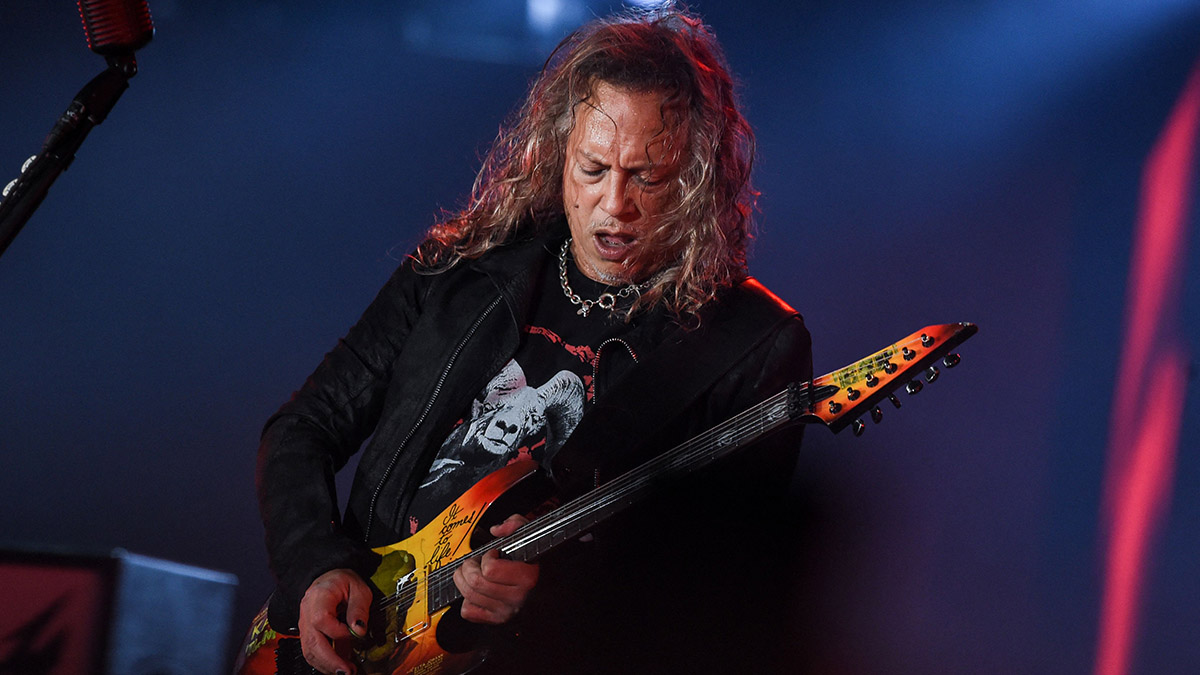
What were the main musical influences for Portals?
“I’ve been listening to a ton of classical music for what seems like forever and ever now. I just love it. One of my favorite things to do is sit down and listen to a piece of classical music and pretend every instrument is the electric guitar, and it’s amazing how everything kind of changes. So, classical music has been a big influence on me.
“Also prog. I discovered prog three or four years ago and, oh my God, I can’t believe that I missed out on so many great prog albums all this time! I can definitely see a line where late 60s and early 70s prog is really instrumental in influencing hard rock and heavy metal. So there’s a huge prog influence on this EP.”
Joe Satriani’s influence is just in me. All that stuff that he taught me way back is still with me to this day... I’m so grateful to Joe for giving me those tools
What did you want to get out of working with players from the L.A. Philharmonic?
“The timbre of classical music, for me, is so beautiful. There’s a completely different color that’s found in so many different ways with classical instruments. A cello through a PA might be one of the heaviest things I’ve ever heard in my life. I wanted to really take advantage of that and exploit that in these tunes.”
How did writing instrumental music change your approach?
“It was great that I was able to get out of that structure of riff, verse, chorus, huge middle part, then back to the riff, verse and chorus. I’m glad I was freed of that and free to go wherever the music wanted to go. That’s pretty much how these arrangements came about. The whole process was a lot simpler and a lot smoother than I expected it to be, and I can tell you one hundred percent that it sounds a lot more complicated than it was to make or record, and that really is a beautiful thing.”
Back in the day, you took lessons with Joe Satriani, the godfather of narrative instrumental rock. Did any of his words of wisdom come flooding back when you were making Portals?
“Joe’s influence is just in me. It’s part of my guitar style because he showed me all these different exercises. He showed me modal thinking and music theory, how to get melodies out of certain chords and how to make chords out of certain melodies.
“All that stuff that he taught me way back is still with me to this day. That stuff will always be a part of me, and it’ll never ever go away because it’s intrinsic in the way I express myself, and I’m so grateful to Joe for giving me those tools.”
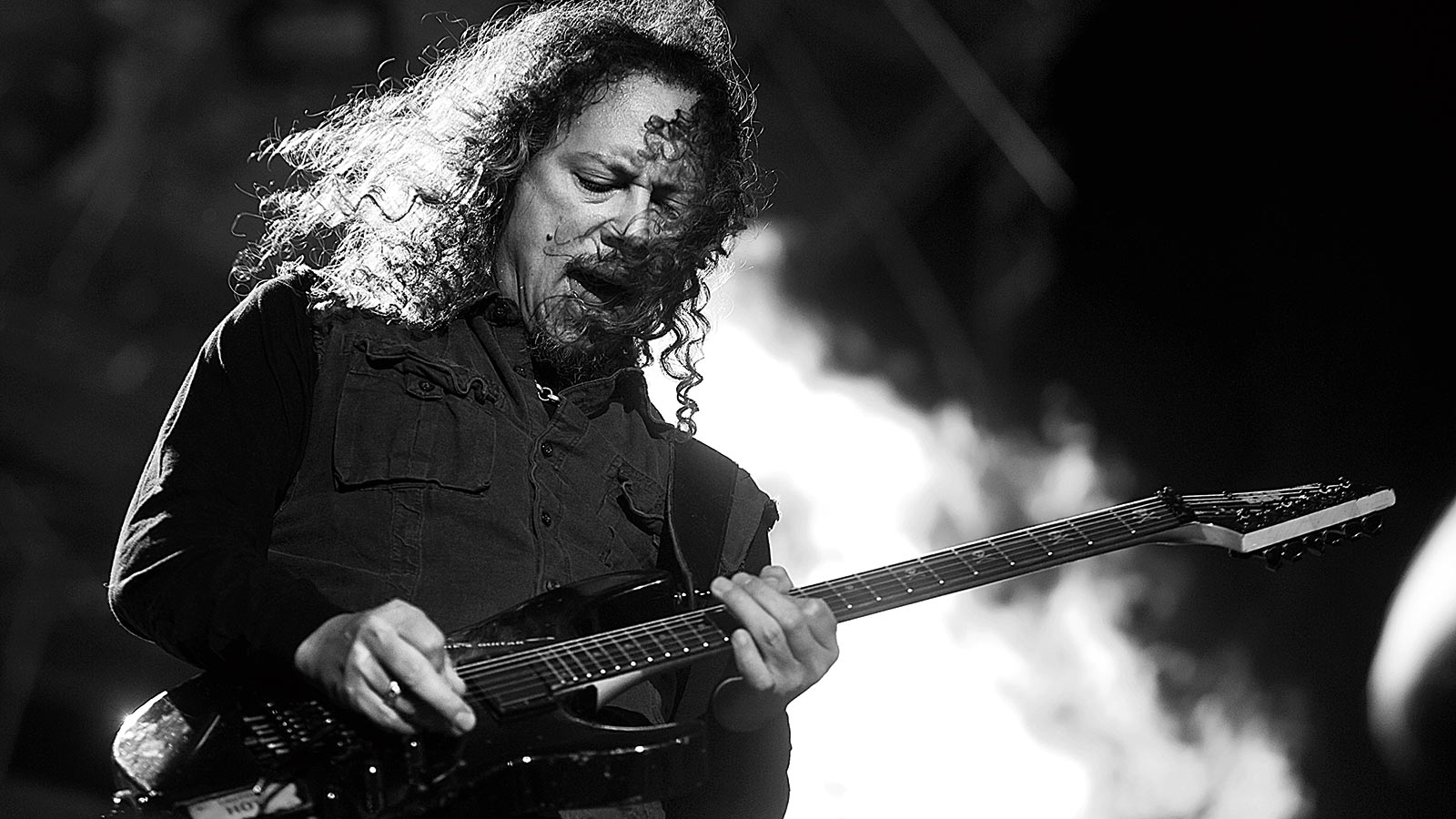
Which of your guitars did you use on the EP?
“I used Greeny, of course [the Les Paul named after its previous owner Peter Green, and later owned by Gary Moore]. Then I used my natural finish ESP Ouija guitar for a lot of the cleaner stuff, and an Olympic White 1964 Fender Strat for some of the arpeggiated stuff.
“I used a Teuffel Tesla guitar, which is a guitar made by Ulrich Teuffel in Germany. He makes amazing guitars. That guitar is very unusual and it’s not really something I play a lot, but I love his guitars and I love what his guitars do.
I used a Teuffel Tesla... It is very unusual – it doesn’t have a headstock but it has one of those kill switches that a lot of other guitar players use a lot.
“The Tesla has a lot of things I don’t usually use. For one, it doesn’t have a headstock. Two, it has a Kahler, and three, it has one of those kill switches that a lot of other guitar players use a lot. I used that on The Incantation. It was drop tuned – I dropped the E to a D. I also used a Fender Acoustasonic – you know, those new ones. It was a Strat Acoustasonic, and I’m so pleased with those. I also used a Martin D-28.”
Is that a sitar we hear on The Incantation?
“Yeah! I’d bought a cheap Danelectro sitar for five hundred bucks and played it on the demo. Then when it came time to record the actual track, I said to my equipment guy, ‘Send me down that sitar,’ but he sent the wrong one.
“He sent this Coral Electric Sitar from the 60s that I’d used on Wherever I May Roam [from 1991’s Metallica] and a few other things. That was the fancy sitar, and I didn’t mean for the fancy sitar to come down, but it came down anyway so I used it!”
What about other gear?
“Amp-wise, I used a Mesa Boogie called the Triple Crown, which isn’t available now. It was a model Boogie made for a hot second. I used that in conjunction with a 1974 Model Marshall Plexi from like, 1969. That Plexi is well known in L.A. and makes the rounds through all the studios.
“I rented it, but I blended it with the Boogie to get a different sound. And of course, I used my wah pedal. I also used a Boss Chorus pedal, which is something I don’t really use a lot, but I started using it on a couple tracks just for a different kind of augmentation. I really, really like chorusing.
“I also used a Gretsch on High Plains Drifter, a Fender Deluxe, and a Rotovibe. That Fender Deluxe was from 1954 or something – you know, the old tweed. It’s so beat up, it’s ugly. I call it ‘The Phantom’ because it’s so ugly, but it sounds amazing!”
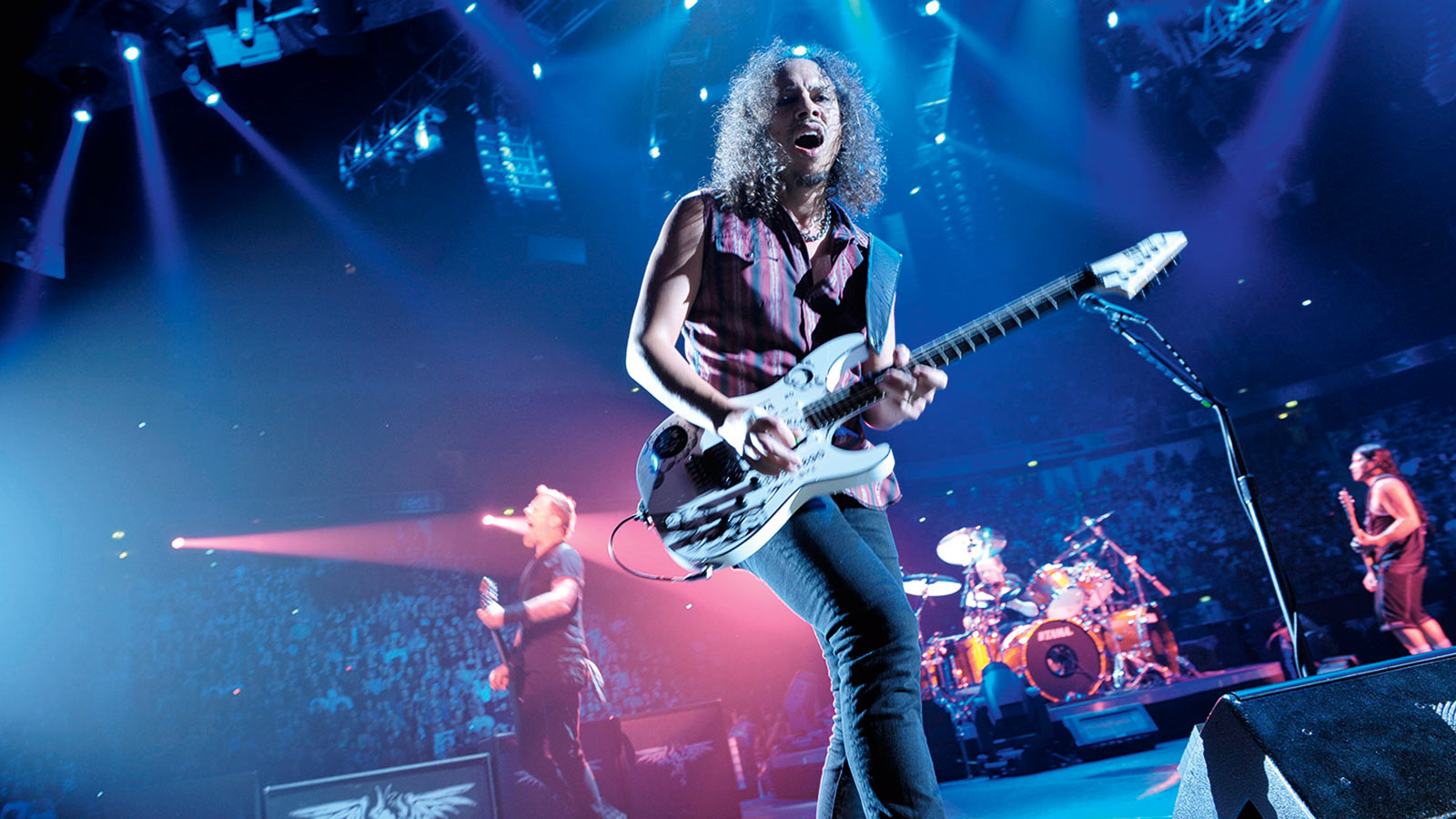
You were quite restrained in terms of pedals and effects...
“I tend to be pretty conservative when it comes to effecting the sound, and it’s all because I just love the sound of a guitar through an amp. Sometimes, when I try to color it up with effects, I don’t like it.
I just love the purity of guitar. Don’t get me wrong, I love effects and I have a ton of pedals, but sometimes it’s hard for me to integrate successfully, or it’s hard for me to use them on a sensible level where it really augments the part. Just putting a pedal on there for novelty – I don’t believe in that.”
Is soundtrack work something we’ll see you do more of?
“Yeah, absolutely. That’s pretty much in the cards and it’s pretty much a given for the future. I was pretty active during Covid, writing a ton of different types of music. I wrote Metallica music, I wrote the Portals music – all different types of music that I’m sitting on, and it’s a lot of varied stuff. I can safely say that I’m not done writing this type of music because I really, really enjoy it and it feels different.
Let’s just say that over the Covid years, Metallica weren’t just sitting around on the couch texting each other
“Going back to Joe Satriani and the way he does his albums – his approach is very traditional, and I purposely stayed away from that. What happened when he started putting out albums was he created a template for a lot of other guitarists to copy on their own solo albums. That’s great – I’m not knocking that – but I just wanted to do something different that’s never been done before.”
Do you have an update on when we can expect a new Metallica album?
“Well, let’s just say that over the Covid years, we weren’t just sitting around on the couch texting each other, complaining about how we couldn’t work. That was the exact opposite of what happened! We’ve been working through the lost years – so you can draw your own conclusions from that!”
- Portals is out now via Blackened Recordings.
Since graduating university with a degree in English, Ellie has spent the last decade working in a variety of media, marketing and live events roles. As well as being a regular contributor to GuitarWorld.com, she currently heads up the marketing team of a mid-scale venue in the south-west of England. She started dabbling with guitars around the age of seven and has been borderline obsessed ever since. She has a particular fascination with alternate tunings, is forever hunting for the perfect slide for the smaller-handed guitarist, and derives a sadistic pleasure from bothering her drummer mates with a preference for wonky time signatures.
“There’d been three-minute solos, which were just ridiculous – and knackering to play live!” Stoner-doom merchants Sergeant Thunderhoof may have toned down the self-indulgence, but their 10-minute epics still get medieval on your eardrums
“There’s a slight latency in there. You can’t be super-accurate”: Yngwie Malmsteen names the guitar picks that don’t work for shred
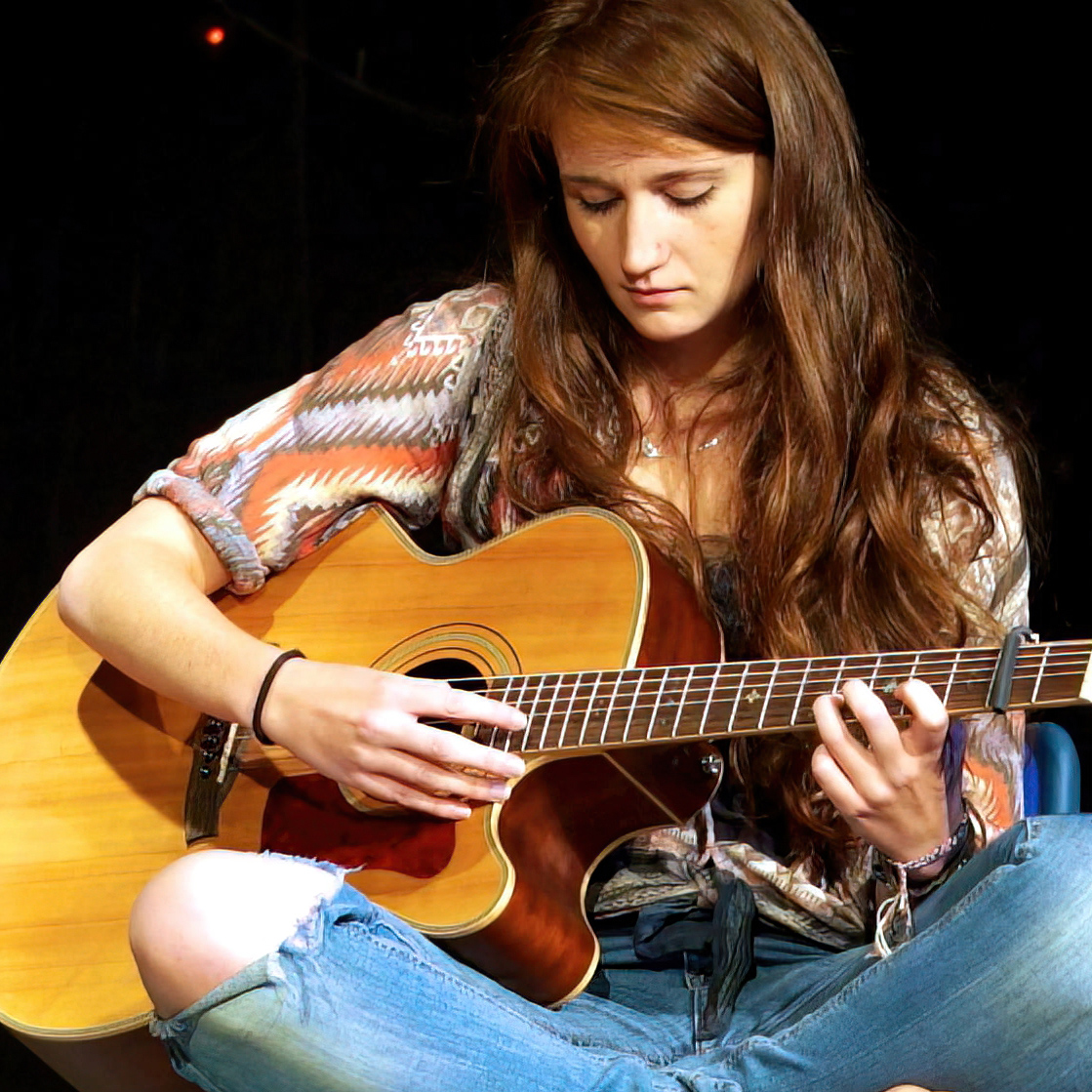
![A black-and-white action shot of Sergeant Thunderhoof perform live: [from left] Mark Sayer, Dan Flitcroft, Jim Camp and Josh Gallop](https://cdn.mos.cms.futurecdn.net/am3UhJbsxAE239XRRZ8zC8.jpg)









